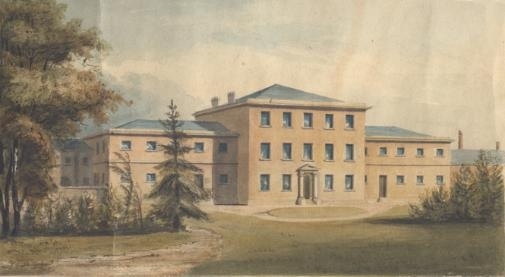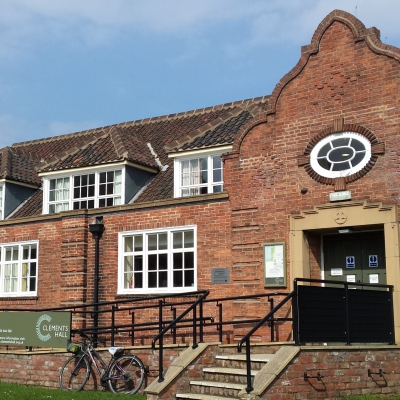Mental Nursing and the Great War
 One of our group members, Peter Nolan, is particularly interested in exploring local evidence about mental health nursing during World War 1, especially in relation to conscription and conscientious objectors:
One of our group members, Peter Nolan, is particularly interested in exploring local evidence about mental health nursing during World War 1, especially in relation to conscription and conscientious objectors:
The outbreak of World War I seriously affected the emerging professions of psychiatry and mental nursing, which at the time were seeking to gain parity of esteem with general medicine and general nursing (Abel-Smith, 1960). Not only were the military fatalities and casualties higher than expected but there was a shortage of adequate places where wounded soldiers could be rehabilitated (Clark, 2014: Hastings, 2014).
Mental hospitals were deemed to have the facilities that the army required and by mid 1915 twenty four hospitals of the then 102 psychiatric institutions that existed were commandeered for the treatment of military personnel. The occupied hospitals were renamed War Hospitals so as to avoid soldiers being tainted with the stigma of receiving treatment in ‘lunatic asylums’ (Board of Control, 1915). In excess of 12,000 patients were either discharged home or transferred to other institutions. Overcrowding, the rapid spread of infectious diseases and malnutrition, severe winters and a shortage of qualified medical and nursing exacerbated the mental health problems of a population that was already weak and vulnerable (Crammer, 1992). Some commentators claim that many patients who, as a consequence, died prematurely, were as much casualties of the war as were the troops and yet, no memorial has ever been erected to their memory.
A small-scale study is currently underway exploring how one of the foremost Quaker institutions for the care and treatment of mental patients in the country, namely The York retreat, coped with the incessant demands from the military authorities for male nurses to join the army. At the outbreak of War, Dr Bedford Pierce (1861-1932), a Quaker who was both an astute manager and passionate about the welfare of staff and residents, was Medical Superintendent at The Retreat (Creak, 1929).
His numerous and detailed letters provide a fascinating insight i.jpg) nto the working lives of nurses and the extra duties undertaken by them as staff numbers declined (RET 5/8/1/2). Countless letters were received by Pierce from conscientious objectors wishing to work at The Retreat, some stating that they would work for no remuneration. Pierce never revealed in any correspondence whether he himself was a conscientious objector, but emphasised more than once that his prime responsibility was to ensure that the patients in his care were adequately treated and cared for (Creak, 1929). After the War, letters continued to arrive requesting work, usually from men who expected to find it difficult to secure work once the war was over. Judging from Pierce’s replies, he found it difficult to refuse these often desperate pleas, but was obliged to inform the writers that there were no jobs available (RET 1/12/5).
nto the working lives of nurses and the extra duties undertaken by them as staff numbers declined (RET 5/8/1/2). Countless letters were received by Pierce from conscientious objectors wishing to work at The Retreat, some stating that they would work for no remuneration. Pierce never revealed in any correspondence whether he himself was a conscientious objector, but emphasised more than once that his prime responsibility was to ensure that the patients in his care were adequately treated and cared for (Creak, 1929). After the War, letters continued to arrive requesting work, usually from men who expected to find it difficult to secure work once the war was over. Judging from Pierce’s replies, he found it difficult to refuse these often desperate pleas, but was obliged to inform the writers that there were no jobs available (RET 1/12/5).
Should there be anyone who knows anything about this topic or is in possession of any information about nursing at The Retreat during the war, I would be delighted to hear from them.
References
Abel-Smith, B. (1960) A history of the nursing profession, London: Heinemann
Board of Control, (1915), 2nd Annual Report, Part 1, London: HMSO
Cherry, C.L. (1989) A Quiet Haven, London and Toronto: Associated University Press, p 103
Clark, C. (2014), The Sleepwalkers: How Europe Went to War in 1914, New York: Harper Books,
Crammer, J. (1992) Extraordinary Deaths of Asylum Inpatients during the 1914-18 War
Creak, M. (1929) The Story of a great Mental Hospital, The Nursing Times, March 6th 1929
Hastings, M. (2014) Catastrophe: Europe goes to War, 1914, London: William Collins
RET 5/8/1/2 – Borthwick Institute, University of York Library – archive papers
RET 1/12/5 – Borthwick Institute, University of York Library – archive papers




 One of our group members, Peter Nolan, is particularly interested in exploring local evidence about mental health nursing during World War 1, especially in relation to conscription and conscientious objectors:
One of our group members, Peter Nolan, is particularly interested in exploring local evidence about mental health nursing during World War 1, especially in relation to conscription and conscientious objectors:.jpg) nto the working lives of nurses and the extra duties undertaken by them as staff numbers declined (RET 5/8/1/2). Countless letters were received by Pierce from conscientious objectors wishing to work at The Retreat, some stating that they would work for no remuneration. Pierce never revealed in any correspondence whether he himself was a conscientious objector, but emphasised more than once that his prime responsibility was to ensure that the patients in his care were adequately treated and cared for (Creak, 1929). After the War, letters continued to arrive requesting work, usually from men who expected to find it difficult to secure work once the war was over. Judging from Pierce’s replies, he found it difficult to refuse these often desperate pleas, but was obliged to inform the writers that there were no jobs available (RET 1/12/5).
nto the working lives of nurses and the extra duties undertaken by them as staff numbers declined (RET 5/8/1/2). Countless letters were received by Pierce from conscientious objectors wishing to work at The Retreat, some stating that they would work for no remuneration. Pierce never revealed in any correspondence whether he himself was a conscientious objector, but emphasised more than once that his prime responsibility was to ensure that the patients in his care were adequately treated and cared for (Creak, 1929). After the War, letters continued to arrive requesting work, usually from men who expected to find it difficult to secure work once the war was over. Judging from Pierce’s replies, he found it difficult to refuse these often desperate pleas, but was obliged to inform the writers that there were no jobs available (RET 1/12/5).